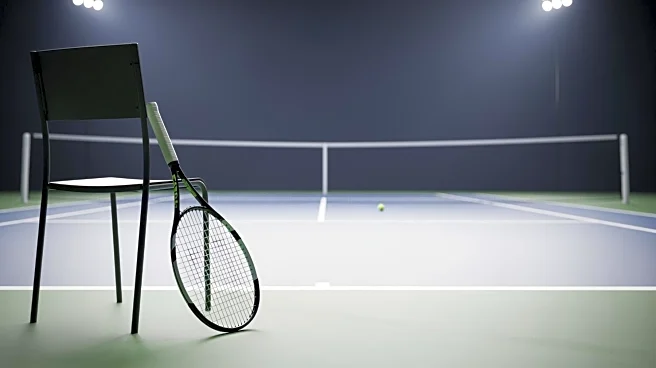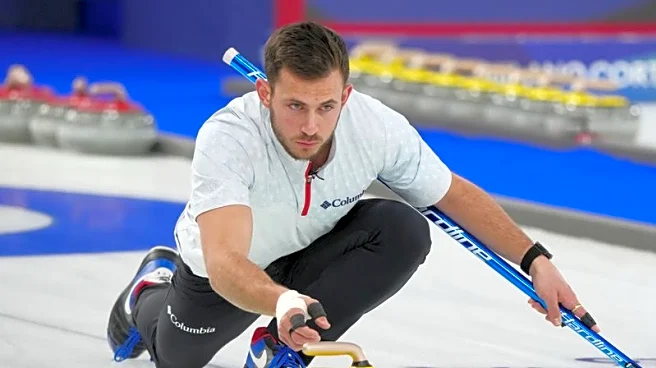What's Happening?
Paula Badosa, a former top-10 tennis player from Spain, has withdrawn from the US Open due to a persistent back injury. The announcement was made by the U.S. Tennis Association, which stated that Jil Teichmann would replace Badosa in the tournament. Badosa has been
sidelined since her first-round loss at Wimbledon on June 30, and her withdrawal from the US Open marks another setback in her career. Badosa, who reached a career-high ranking of No. 2 in 2022, is currently ranked No. 12. Her best performance at the US Open was reaching the quarterfinals last year. The US Open is scheduled to begin on August 24, and Alizé Cornet is next in line to enter the draw if another player withdraws.
Why It's Important?
Badosa's withdrawal from the US Open is significant as it impacts her ranking and competitive standing in the tennis world. Her absence from one of the year's major Grand Slam tournaments could affect her momentum and visibility in the sport. For the US Open, losing a high-profile player like Badosa may influence audience interest and ticket sales. Additionally, it opens opportunities for other players like Jil Teichmann and potentially Alizé Cornet to compete at a high level, which could alter the dynamics of the tournament. Badosa's ongoing injury also highlights the physical demands and challenges faced by professional athletes.
What's Next?
With Badosa's withdrawal, the focus shifts to her recovery and future participation in upcoming tournaments. Her ability to return to form will be crucial for her career trajectory. Meanwhile, the US Open will proceed with adjustments to the player lineup, potentially affecting matchups and outcomes. Stakeholders such as sponsors, fans, and fellow players will be watching closely to see how Badosa manages her injury and whether she can regain her competitive edge. The tournament itself will continue to adapt to changes in player participation, maintaining its status as a premier event in the tennis calendar.
Beyond the Headlines
Badosa's situation underscores the broader issue of athlete health and the impact of injuries on professional sports careers. It raises questions about the support systems in place for athletes dealing with chronic injuries and the pressures they face to perform despite physical setbacks. The decision to withdraw from a major tournament like the US Open also reflects the importance of prioritizing long-term health over immediate competition, a choice that many athletes must consider.


















